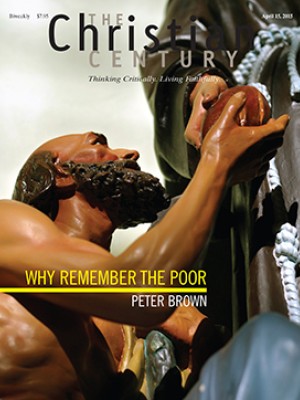Hindu nationalists push education agenda in India’s government
Soon after Prime Minister Narendra Modi’s conservative Bharatiya Janata Party swept to power last summer, he appointed a little-known historian as chairman of the Indian Council of Historical Research, which funds all serious historical scholarship in the country.
Critics said that Yellapragada Sudershan Rao’s greatest qualification was his closeness to the Rashtriya Swayamsevak Sangh, a 5-million-member Hindu nationalist organization where Modi began his political career.
A few months into his appointment, Rao recruited three RSS officers to the council. At the same time, he proposed that the institute view the Indian mythological scriptures—the Ramayana and the Mahabharata—as historical fact.
In the ten months since Modi’s election, Hindu right-wing groups such as the RSS have expanded their influence across much of India’s government, say analysts. The groups’ role has become especially crucial in the formulation of new Indian education policies slated for adoption later this year.
Read our latest issue or browse back issues.
“What we need in India is value-based education, education that will build character,” said Dinanath Batra, a leader in Shiksha Bachao Andolan, a pro-Hindu group invited by the government to make recommendations for the new education policy. “We can’t do that without religion, so religious studies must become a part of school curriculum. The second thing that is required is a complete overhaul of the current setup—every single textbook should be rewritten to reflect national pride.”
To that end, Batra recently persuaded authorities in the northern Indian state of Haryana to use a Hindu holy book, the Bhagavad Gita, as part of the school curriculum. He said he saw no problem with assigning a Hindu holy book in classrooms that include Muslim and Christian students.
“What does the Gita teach? That we are all one, we should all be honest,” Batra said. “Unlike the Qur’an or the Bible, nowhere does it say you have to worship only one god.”
Religious conservatives have flooded India’s Human Resource Development Ministry with recommendations that many fear will blur the line between government and Hinduism. One proposal recommends eliminating English as a compulsory language in schools. Another recommends studying mathematics as discussed in the Vedas, the oldest Hindu scriptures.
“Why should we not teach Vedic math or science?” said Ajju Chauhan, the Uttar Pradesh state leader of the Bajrang Dal, one of the most militant Hindu groups. “There is proof in the scriptures about achievements of Indian scientists that the West refuses to accept. We have to create a nation where our students are proud to be Indian.”
In December, the Bajrang Dal stirred controversy when Chauhan and others carried out a mass conversion of 15 Muslim families in Agra, home of the Taj Mahal. The families later said they had no idea they were being converted to Hinduism and attended the ceremony thinking it was part of a government antipoverty program.
Modi remained silent about the groups’ exploits for his first nine months in office, until a speech in Parliament in early March.
“Let’s stop fighting,” he said. “Hindus and Muslims should unite to fight poverty. As for my government, we follow only one religion—India first. We have only one holy book—the Indian Constitution.”
But Modi stopped short of directly admonishing the Hindu groups that are an important part of his political base.
Gurpreet Mahajan, a political scientist at Jawaharlal Nehru University, said these groups are threatening to derail Modi’s agenda, especially its economic focus.
“India is a country that has managed to live in diversity despite the strife,” Mahajan said. “Many people see that as the Hindu way of life, where you respect everybody’s values. We would like to see that continue—there’s a lot at stake.” —Religion News Service






